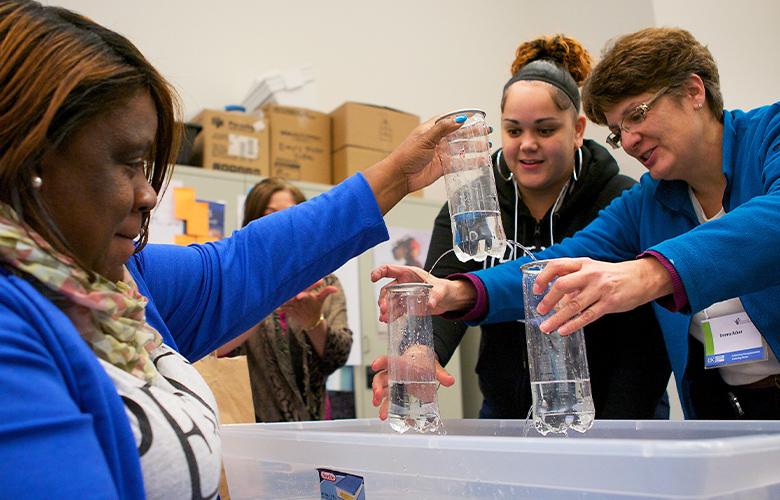
Here at EDC, I’ve had the opportunity to establish, sustain, and learn from communities of practice focused on improving STEM education, early childhood education, and out-of-school time learning. Etienne Wenger, who was influential in introducing the concept, defines communities of practice as “groups of people who share a concern or a passion for something they do and learn how to do it better as they interact regularly.”
I’ve found that communities of practice are a powerful approach to fostering ongoing professional learning, promoting peer mentoring, and fueling changes in practice that support continuous improvement. Who benefits from communities of practice? Really, any group of people focused on a topic: researchers, teachers, program developers, program leaders, instructional designers, and health and mental health practitioners.
Are you interested in establishing and supporting a community of practice? To help you get started, here are three effective strategies that my colleagues and I use:
- Offer collaborative technical assistance to the community of practice. Work closely with leaders, evaluators, and staff in your community of practice to identify strengths and interests, design capacity-building activities, and build connections. Doing so helps community members develop a sense of ownership and connection as they share their expertise and learn from each other. Use evaluation findings and member feedback to adjust the format, content, and methodology of technical assistance.
- Collaborate across communities to build capacity and expand opportunities. Leverage strengths across diverse communities of practice. Look for shared interests and goals in communities of practice funded by different programs and organizations, and pool your expertise, challenges, strategies, and tools. Open events—such as webinars—to others and share resources. Develop agreements to co-host group activities at national conferences and meetings, and coordinate submissions of group conference presentations and journal articles.
- Use technology tools and social media strategically. Use technology tools and social media platforms to connect and support your community of practice, share information with the public, and raise visibility of the work of the community of practice and its members. Review and upgrade tools regularly. Draw upon usage statistics and feedback from the community to evaluate the effectiveness of all tools and platforms.
I hope these strategies will help you tap the power of communities of practice to build capacity, promote continuous improvement, sustain learning, and create vibrant, change-focused networks. Do you lead a community of practice and have strategies to share? Please share them below.
EDC project director Siobhan Bredin is an expert in technical assistance, professional learning, and continuous improvement.
Comments
Add new comment